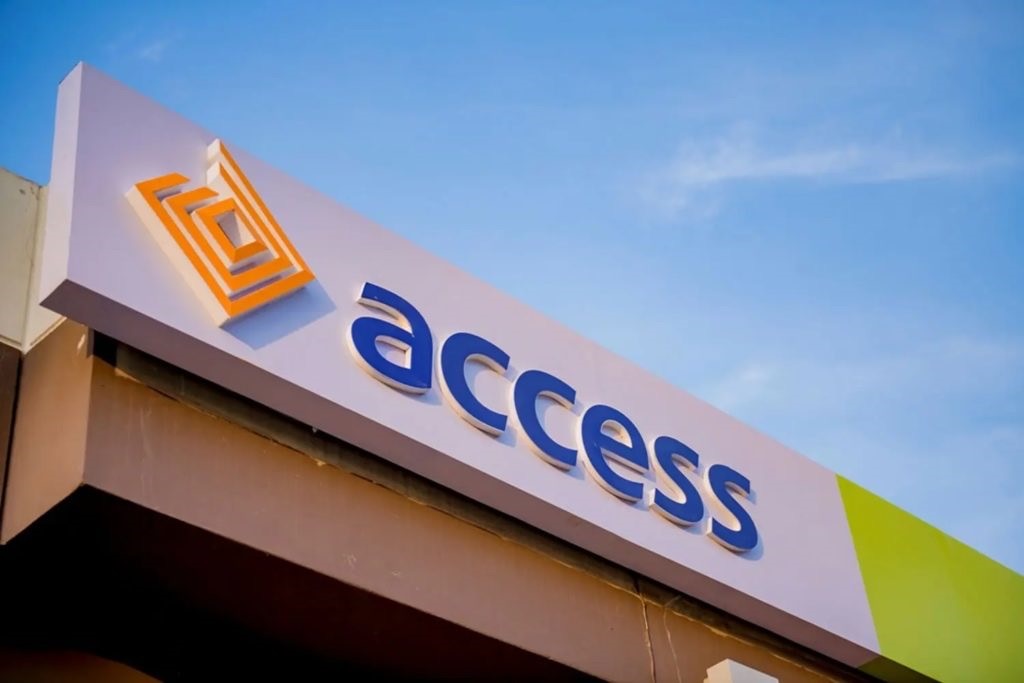Competing with 21 conventional commercial banks in Nigeria, 35-year- old, Access bank has towered above older and younger ones, venturing into local and international acquisitions, with the latest the National Bank of Kenya (NBK).
Thriving Diamond Bank Nigeria had also been acquired by Access Bank in December 2018, and completed the transactions of the merger fully in the first half of 2019.
A notification sent to the Nigerian Exchange by Mr Sunday Ekwochi, the Access bank’s Company Secretary, on March 13, 2024, explained that the bank had entered into a binding agreement with Kenyan-based KCB Group Plc (KCB) for the acquisition of NBK from KCB.
He said KCB is also the holding company of NBK, which is Kenya’s largest commercial bank and that the transaction is in furtherance of the bank’s African expansion strategy and will reposition it as a stronger and significant player in the Kenyan market.
The latest acquisition is forging ahead midst mourning of death of the 57-year-old Chief Executive Officer (CEO) of Access Bank, Mr Herbert Wigwe, in a helicopter crash in the United States of America on February 9, 2024 along with his wife and son, Doreen and Chizi.
The vacuum created by the death of Wigwe has caused the immediate recall of 57-year-old pioneer Group Executive Officer, Mr Aigboje Aig-Imoukhuede, to act as Access bank’s Non-Executive Chairman.
According to the bank’s secretary, Ekwochi, Aig-Imoukhuede would replace Mr Abubakar Jimoh, the erstwhile Chairman of the Holdings, who remains on the Board as an Independent Non-Executive Director.
Ekwochi said that following extensive consultations with key stakeholders, the Access Holdings Board unanimously decided to invite Aig-Imoukhuede to the helm of governance of the group.
“This visionary and accomplished leader is bringing an outstanding record of accomplishments, wealth of expertise and leadership to guide the group into a new era of success.
“With an illustrious career spanning several decades in the banking and finance sector, Aig-Imoukhuede has proven to be an exceptional and influential leader.
“Having admirably laid a solid foundation for Access Bank’s success as Group CEO between 2002 and 2013, ably supported by his partner and deputy, the late Dr Herbert Wigwe, who later succeeded him.
According to Ekwochi, under Aig-Imoukhuede’s leadership, Access Bank experienced remarkable growth and established itself as a trusted financial institution within the community.
The company secretary noted that the bank transformed from a minor player into one of Nigeria’s top five banks with presence in nine other African countries and the United Kingdom.
Ekwochi revealed that under Aig-Imoukhuede’s stewardship, Access Bank grew its customer base from 10 thousand to over six million with more than 5,000 employees and an asset base of 12 billion US dollars.
He said Access Bank, under the pioneer Group CEO, achieved numerous milestones and became a globally recognised name, adding that Aig-Imoukhuede’s strategic vision, innovative thinking, and deep market insight were instrumental to shaping the bank’s success.
“Following Aig-Imoukhuede’s retirement as the bank’s CEO in December 2013, he co-founded the Tengen Family Office Ltd. The office oversees a significant portfolio of investments and businesses in banking, finance, insurance, technology, real estate, and energy.
“Through the Aig-Imoukhuede Foundation, he is focused on building Nigeria’s next generation of government leaders, helping transform public sector effectiveness, and improving access to quality primary health care.
“The decision to bring back Aig-Imoukhuede as the Group’s Non-Executive Chairman reflects the Board’s commitment to our core values and determination to build upon the strong foundation, he jointly established with Wigwe.
“With his return, Access Holdings aims to leverage his extensive experience, industry knowledge, and exceptional leadership skills to consolidate on the growth and accomplishments recorded under Wigwe’s leadership.
“In his new role as Non-Executive Chairman, Aig-Imoukhuede will collaborate with the Board of Directors to oversee strategy and provide guidance to the executive management team.
“His return is not only a testament to his unwavering dedication to Access Group but also a clear demonstration of the Board’s confidence in his ability to lead the Group to new heights,” the company secretary said.
Founded in 1989 with headquarters in Prince Alaba Abiodun Oniru Road, Victoria Island, Lagos, Nigeria, the bank has excelled in loans, credit cards, savings, investments, and mortgages and portfolio investments.
Originally a corporate bank, they expanded into personal and business banking in 2012 and in conclusion of its merger with Diamond Bank, Access Bank unveiled its new logo, signalling the commencement of a new enlarged banking entity. The bank presently employs more than 28,000 people.
After the merger Access Bank became the largest bank in Africa by customer base, and the largest bank in Nigeria by assets.
As of September 2021, in addition to Nigeria, Access Bank has subsidiaries in Mozambique, Zambia, Congo, Sierra Leone, Rwanda, Gambia, Ghana, Kenya, South Africa, and in the United Kingdom. Access Bank Group also maintains representative offices in China, India, Lebanon and United Arab Emirates.
In early 2021, Access Bank announced that it had identified eight new African countries for potential expansion, seeking to benefit from a continent-wide free trade agreement. The target markets are Morocco, Algeria, Egypt, Côte d’Ivoire, Senegal, Angola, Namibia and Ethiopia, which would extend the international presence of the bank to 18 countries.
Access Bank is expected to establish offices in some countries and in others, should partner with existing banks and leverage its digital platforms to provide services to clients.
In July 2021, the French government manifested its will to strengthen its ties with Nigerian captains of industry including Herbert Wigwe, the group managing director of Access Bank, and announced that an agreement had been signed which would allow the group to settle in France.
This agreement confirms the group’s vision and desire to extend its influence and activities to all of France and gradually to all of Europe.
The opening of Access Bank in Paris will be managed by the group’s London branch, headed by Britain’s Jamie Simmonds. The new offices in France will focus on trade finance. The Nigerian bank is also considering embarking on investment and wealth management services.
Access Bank is a large financial-services provider. In June 2021, the bank had an asset base in excess of US $25,5 billion.
The bank received its license from the Central Bank of Nigeria in 1989, and listed on the Nigerian Stock Exchange in 1998.
In 2002 Access Bank was taken over by a core of new management led by Aig-Imoukhuede and Herbert Wigwe and in 2005 it acquired Marina Bank and Capital Bank (formerly commercial bank Crédit Lyonnais Nigeria) by merger.
In 2007 Access Bank established a subsidiary in Banjul, The Gambia. This bank now has a head office and four branches, and the bank has pledged to open another four branches.
Also in 2008 Access Bank acquired 88 percent of the shares of Omnifinance Bank, which was established in 1996. It also acquired 90 percent of Banque Privée du Congo, which South African investors had established in 2002.
Access Bank acquired 75 percent of the shares of Bancor SA, in Rwanda. Bancor had been established in 1995 and reorganized in 2001 and in September, Access Bank opened a subsidiary in Freetown, Sierra Leone, and then in October, the bank opened subsidiaries in Lusaka, Zambia and in London, United Kingdom.
Finbank of Burundi in 2008 joined the Access Bank network but exited the group in 2014 and in 2011 Access Bank was in talks with the Central Bank of Nigeria to acquire Intercontinental Bank which later became a subsidiary of Access Bank which recapitalized the former and acquired a 75 percent majority interest in its stock.
Access Bank in 2020, acquires Kenya’s Transnational Bank, including 100 percent of shareholding and 28 branches around Kenya.
In October 2020, Access Bank received regulatory approval to establish in Mozambique and plans were also announced of the Group transforming into a Holding Company and entering South Africa.
Venturing into African trade, British International Investment (BII), a UK’s Development Finance Institution (DFI) has announced a $60 million trade finance facility for Access Bank and five of its other Pan-African subsidiaries.
The bank’s Spokesman, Mr Abdul Imoyo, said this in on March 20, 2024 in Lagos that BII, also an impact investor partnership with Access Bank, would strengthen import and export capabilities amongst local businesses and plug the foreign currency supply gap.
He explained that the programme supports Access Bank’s strategy to enable continental trade and deepen BII’s commitment to bolstering financing environments in fragile economies.
“BII estimates the loan programme will stimulate African trade volumes by 90 million dollars.
“The agreement reinforces BII’s ongoing relationship with Nigeria’s largest commercial bank by assets.
“It facilitates the provision of systemic liquidity during a period characterised by a challenging macroeconomic environment,” he said.
Mr Seyi Kumapayi, Executive Director, African Subsidiaries, Access Bank, said that the bank was on a purposeful mission to scale intra-African trade and position the continent as a viable market for global trade.
Kumapayi expressed delight on the tremendous potential that the trade finance facility with the BII affords the bank across its pan-African subsidiaries.
He noted that the strategic collaboration, not only strengthens the bank’s import and export capabilities but also expands its resources to support local industries, especially women-owned businesses, to drive economic growth.
“By stimulating trade volumes, we will be playing a key role in fostering long-term economic resilience for the continent, while increasing attractiveness for increased foreign investments,” Kumapayi said.
As the bank progresses members of staff have not been dimmed by the death of co-founder, Wigwe, but are in high spirit to continue to fly the flag of the bank across the continent and the world.
A senior official of the bank said that with or without the tragedy that befell the bank, they were good to go all out to make a mark and stamp the foot of Wigwe.
The workers promised that the staff would use the deceased great visions for the continued growth and development of the bank.
























